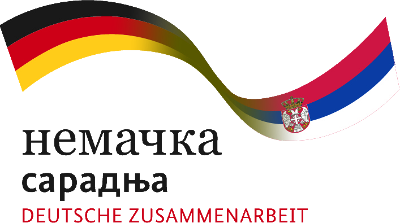Related H2020 projects
The vision of CELSIUS 2.0 is to accelerate the transition to smart and sustainable heating and cooling solutions. Among other things, this includes recuperating the available waste heat in cities and letting heating and cooling be a smart part of your energy system as a whole.
Here you can find relevant documents of the project:position papers, an overview of demonstration projects and the CELSIUS Wiki.
The project aims to showcase how DHSs can be more resource- and energy-efficient, particularly with technologies to use low-grade (i.e. low temperature) excess heat sources in energy-efficient buildings.
You can see several project outcomes that can be of interest amongst the project reports, as ell as an overview of the project´s innovations.
The Heat Roadmap Europe 4 project maps and models the heating and energy systems of the 14 largest users of heat in the EU, to develop new policies at local to EU levels to ensure the uptake of efficient, sustainable and affordable heating and cooling solutions. Here you can view the Heat roadmaps by country, the Pan-European Themal Atlas 4.3, Recommendations for regional and local policy makers, Business Cases and Strategies to Encourage Market Uptake and other project reports.
The aim of UpgradeDH is to improve the performance of inefficient DHSs in Europe by supporting selected demo cases for upgrading and later replicating the experiences to similar ones. It received funding under the same call for proposals as KeepWarm and will run over a similar time period. Here you can find first deliverables about Best practice instruments and tools for diagnosing and retrofitting DH networks and Best practice examples on upgrading the performance of DH networks.
PLANHEAT is developing and validating an easy-to-use tool to support local authorities in selecting, simulating and comparing alternative scenarios for heating and cooling. It has also made available an e-learning platform (it is necessary to register to gain access).
The ReUseHeat project showcases replicable models enabling the recovery and reuse of excess heat available at the urban level. It aims to increase the energy efficiency of district heating and cooling systems in cities across Europe. You can read an overview of waste heat sources and scientific publications of the project here.
THERMOS (Thermal Energy Resource Modelling and Optimisation System) provides advanced energy system data and models in a user-friendly, open-source software to make heat network planning faster, more efficient and cost-effective. You can follow those links to the THERMOS tool and to its training programme.
ENTRAIN wants to encourage the adoption of a systematic and efficient energy planning able to reduce the local carbon footprint, intensifying the use of RES. The two main goals: CO2 emissions reduction and the resulting improvement of the local air quality, alongside socio-economic benefits for local communities of the 5 key regions in Italy, Germany, Croatia, Slovenia, Poland.
The overall objective of REWARDHeat is to demonstrate a new generation of low-temperature district heating and cooling networks, which will be able to recover renewable and waste heat, available at low temperature. These networks will be able to increase production and distribution efficiency by recovering, renewable and waste heat available at low temperature.
By focusing on the exploitation of energy sources in urban environments, the replicability and upscaling potential of the decentralized solutions will be maximised. These solutions aim to promote a cost efficient and technically viable decarbonisation of the European DHC sector.
WEDISTRICT is an EU-funded project that brings together 21 partners from across Europe. They aim to demonstrate innovative 100% fossil free heating and cooling solutions for new and existing district heating and cooling systems. These technologies will be implemented in four real-scale projects in Spain, Romania, Poland and Sweden. The demonstration cases will present the best practices that can be replicated across different climate zones and building types, transforming the heating and cooling sector.
The overall objective of LC Districts is to improve regional development policies and programmes in the areas of building renovation and construction of energy efficient buildings, creation and renovation of district heating and other urban renovation actions, in order to facilitate the transition to low-carbon districts and municipalities.













